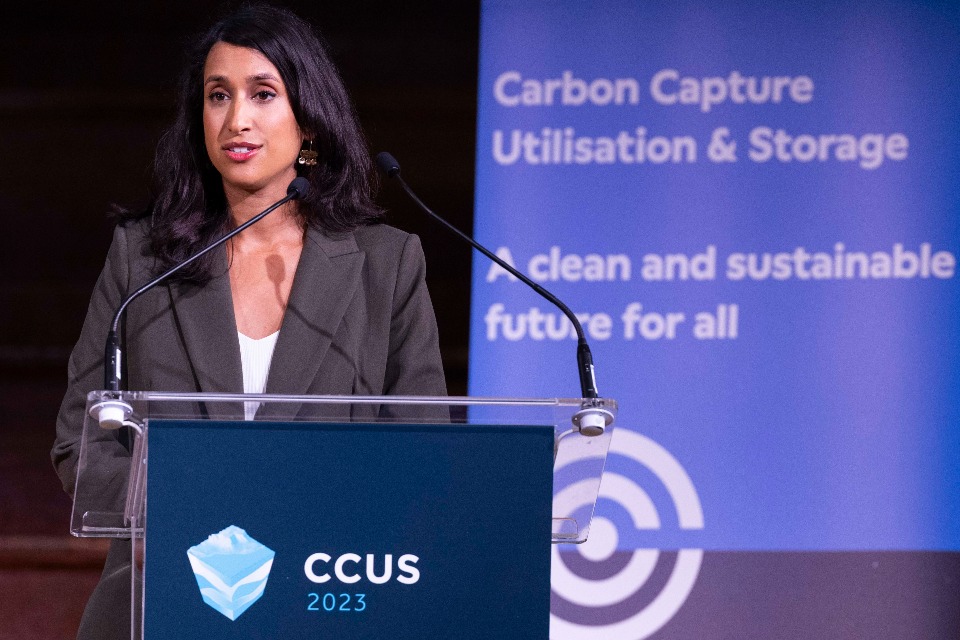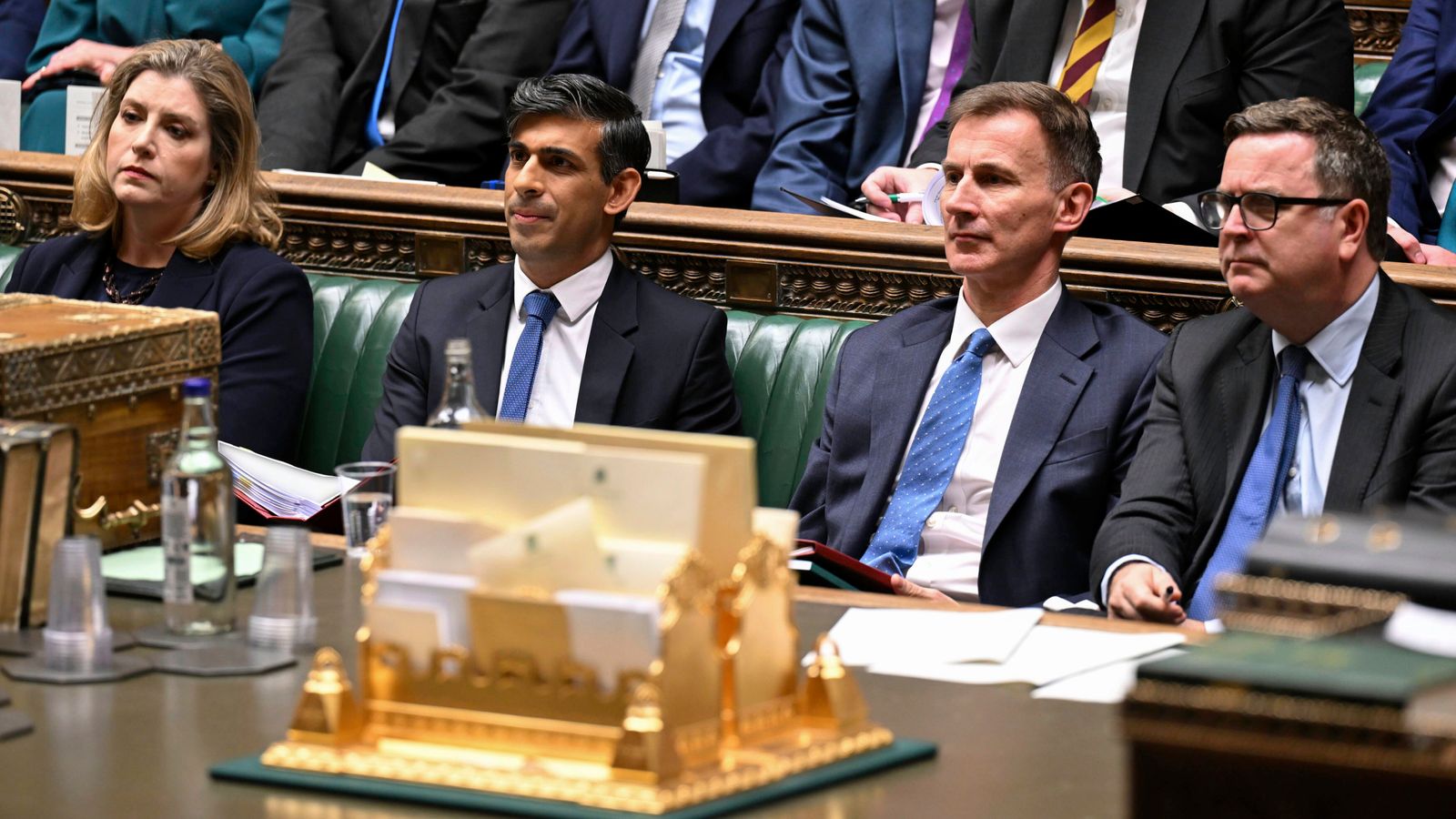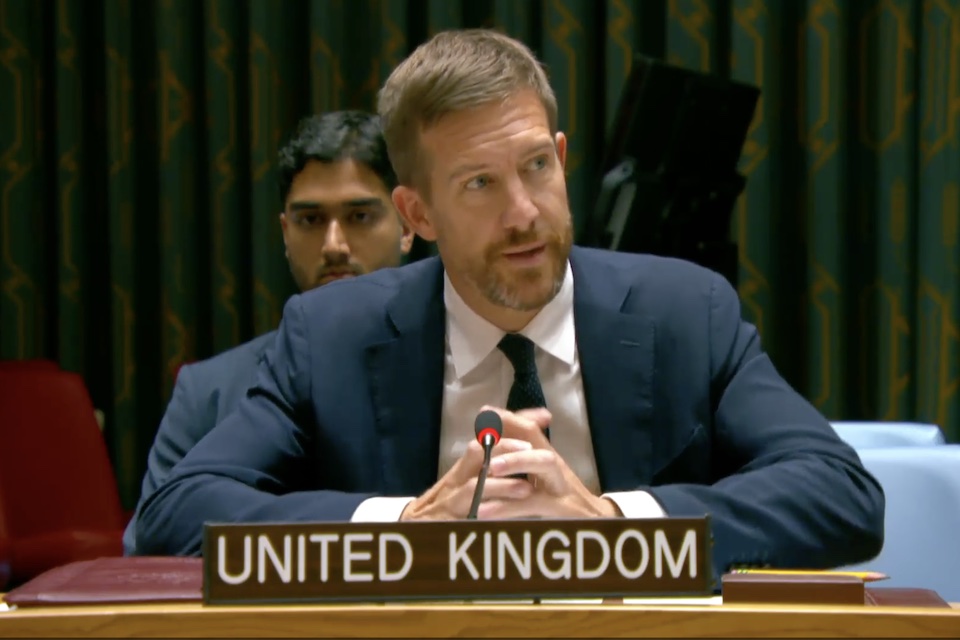UK’s carbon capture opportunities – GOV.UK
Good morning everyone, and a warm welcome to the Carbon Capture & Storage Association (CCSA) conference.
A huge thank you to Ruth for everything that she’s done to put this together.
It is genuinely a real pleasure to be here today to talk about the extraordinary opportunities for carbon capture that we have in this country.
Two hundred years ago, Britain was instrumental in helping the world industrialise.
It was our innovation, creativity, and global reach that spread the industrial revolution and transformed global economies.
Today we have a different, but no less important, role to play – helping the world decarbonise.
We’ve already cut our own carbon emissions in half in just 30 years and boosted our share of renewables from 7% in our energy output in 2010 to almost half today.
Of all the major economies, we have set the toughest targets and thanks in no small part to our energy industry, we have exceeded all of them.
But the challenges ahead are significant.
How do we accelerate those reductions?
How do we help other countries do the same?
And how do we achieve it fast enough to put a brake on climate change?

I passionately believe that the key to success will be doubling down on sectors with the greatest opportunities.
The greatest opportunities to decarbonise, to help polluting industries go green and to boost jobs, investment and growth.
And make no mistake, carbon capture and storage is one of those sectors.
Britain’s vast potential means I believe we can lead the world in safely capturing and storing carbon dioxide.
Creating a path for industries which cannot decarbonise at the pace we require – like cement and chemicals – to join the green revolution.
And there are other compelling benefits.
For example, CCUS will help ensure the reliability of electricity supplies, bolstering our future energy security and it will help regenerate communities across the country, particularly in our industrial heartlands and coastal communities where jobs and investment are most needed.
Before Parliament, I spent a lot of time working with those communities which felt left behind and the prospect today of a new, multi-billion-pound cycle of investments in decarbonisation projects represents huge hope for the future.
We have the right geology, the right infrastructure, and the right skills to be at the forefront of carbon capture and to lift other economies by cutting the cost of decarbonising.
That’s why the government is making a massive commitment to this game-changing technology.
The Prime Minister has made it abundantly clear in recent weeks that we need pragmatic answers to cut the carbon challenge.
And there’s no better example of this than CCUS.
Carbon capture and storage is pragmatism in action.
What’s more common sense than taking advantage of our own geography to address one of the greatest threats facing mankind?
That’s why we remain fully committed to:
- our unprecedented £20 billion for early deployment of the technology, among the biggest funding commitments in Europe
- the first 8 projects of the ‘first-of-a-kind capture networks’ we’ll be taking forward in the North East, North West and Wales
- and the next 2 carbon capture clusters in the North East and Scotland
These announcements put us on track to achieve between 20 and 30 million tonnes of captured and stored carbon dioxide a year – the equivalent of taking 4 and 6 million cars off the road each year from 2030.
If we make this target, it will support 50,000 jobs by 2030, and add £5 billion to the economy by 2050.
Not only helping us deliver our net zero commitments but also creating prosperity throughout the UK.
I was delighted to reach alignment with Eni on the key commercial principles to take Hynet forward, and I’m looking forward to working further with them to celebrate this important milestone.
But of course we must look beyond the domestic implications of CCUS.
CCUS will be a global industry, and to continue leading in this space we need to think beyond UK clusters.
This also poses some key questions.
Firstly, how do we deliver enough storage to make Carbon Budget 6 a reality?
The North Sea Transition Authority estimates as much as 100 carbon stores will be needed to meet our net zero commitments.
Well we have the space, and then some.
With 78 billion tonnes of potential storage, the reality is the UK has the potential to be one of the greatest CO2 storage bases in Europe.
But if we want to match that space to market need we’ll require a system level approach, creating a brand new network with new technical codes and contracts, with government and industry working together to achieve it.
We will set out that ambition and I know for many of you this must include more clarity on timelines.
I’ve spoken to lots of investors and stakeholders since I’ve been in this role and that has come out clearly.
So my department will be publishing a vision for the CCUS sector later this year.
This will provide a long-term picture of an expanding sector to bolster investor confidence.
But the second question is no less important.
How do we keep costs down? And therefore, how do we remain competitive?
As the Prime Minister has made clear, we don’t get to net zero without honest conversation with the public.
Part of that conversation is demonstrating that we have achieved the best value for money possible.
We can’t separate the market and the path to net zero.
Now, I recognise that costs have gone up, that the sector is dealing with materials price inflation.
We’ve done everything we can to reduce costs in our economy.
From the 10.7% inflation rate in the final 3 months of last year, the CPI is now down considerably in August and projected to fall further.
But whatever the final rate for 2023, the imperative remains that we need you to innovate to drive cost reductions and deliver as much carbon stores for as little money as possible.
In the longer-term, CCUS will not be successful unless we can demonstrate that the industry is self-sustaining.
And we can do that together, building on the strong partnership that government and industry have developed over the last few years.
If you help us to design viable business models, that will give businesses the confidence to invest in them.
And we know that if these questions can be answered an immense prize is waiting for us.
We can capture £8 billion of global CCUS turnover by 2050, and create thousands of jobs from the north-east of Scotland to Morecombe Bay, Wales and Humber.
We can help Britain achieve energy security, so we are no longer at the whims of foreign regimes.
And we can make an immense contribution to Britain achieving its carbon targets, and helping carbon-intensive industries join the green energy revolution.
Without a doubt, carbon capture and storage stands among the most exciting and effective ways in which Britain can lead in tackling climate change.
And ultimately, it’s the people in this room who have the capacity to make it happen.
So let’s make it happen together.
Thank you.



